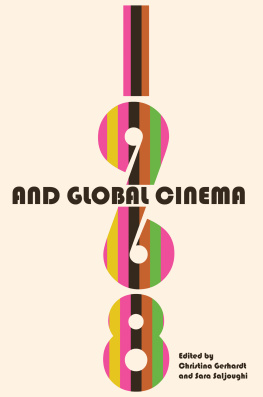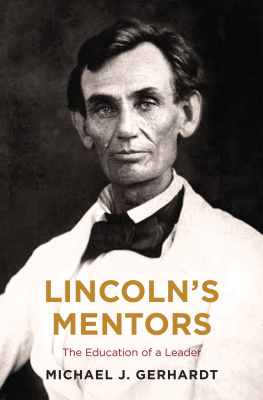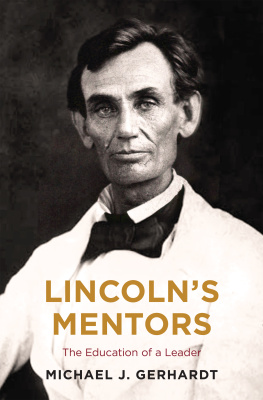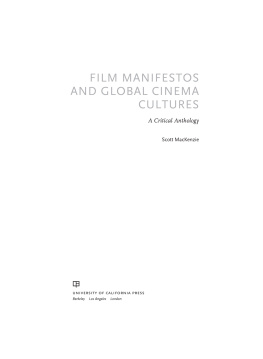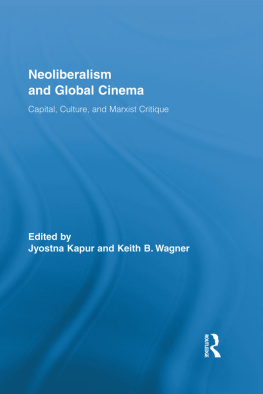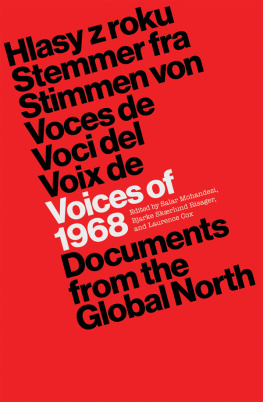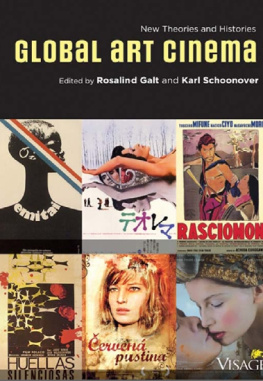Gerhardt Christina - 1968 and Global Cinema
Here you can read online Gerhardt Christina - 1968 and Global Cinema full text of the book (entire story) in english for free. Download pdf and epub, get meaning, cover and reviews about this ebook. year: 2018, publisher: Wayne State University Press, genre: Politics. Description of the work, (preface) as well as reviews are available. Best literature library LitArk.com created for fans of good reading and offers a wide selection of genres:
Romance novel
Science fiction
Adventure
Detective
Science
History
Home and family
Prose
Art
Politics
Computer
Non-fiction
Religion
Business
Children
Humor
Choose a favorite category and find really read worthwhile books. Enjoy immersion in the world of imagination, feel the emotions of the characters or learn something new for yourself, make an fascinating discovery.
- Book:1968 and Global Cinema
- Author:
- Publisher:Wayne State University Press
- Genre:
- Year:2018
- Rating:3 / 5
- Favourites:Add to favourites
- Your mark:
- 60
- 1
- 2
- 3
- 4
- 5
1968 and Global Cinema: summary, description and annotation
We offer to read an annotation, description, summary or preface (depends on what the author of the book "1968 and Global Cinema" wrote himself). If you haven't found the necessary information about the book — write in the comments, we will try to find it.
1968 and Global Cinema — read online for free the complete book (whole text) full work
Below is the text of the book, divided by pages. System saving the place of the last page read, allows you to conveniently read the book "1968 and Global Cinema" online for free, without having to search again every time where you left off. Put a bookmark, and you can go to the page where you finished reading at any time.
Font size:
Interval:
Bookmark:

CONTEMPORARY APPROACHES TO FILM AND MEDIA SERIES
A complete listing of the books in this series can be found online at wsupress.wayne.edu
GENERAL EDITOR
Barry Keith Grant
Brock University
ADVISORY EDITORS
Robert J. Burgoyne
University of St. Andrews
Caren J. Deming
University of Arizona
Patricia B. Erens
School of the Art Institute of Chicago
Peter X. Feng
University of Delaware
Lucy Fischer
University of Pittsburgh
Frances Gateward
California State University, Northridge
Tom Gunning
University of Chicago
Thomas Leitch
University of Delaware
Walter Metz
Southern Illinois University
2018 by Wayne State University Press, Detroit, Michigan 48201. All rights reserved. No part of this book may be reproduced without formal permission. Manufactured in the United States of America.
Library of Congress Cataloging Number: 9780814342930
ISBN 978-0-8143-4293-0 (paperback)
ISBN 978-0-8143-4542-9 (printed case)
ISBN 978-0-8143-4294-7 (ebook)
Wayne State University Press
Leonard N. Simons Building
4809 Woodward Avenue
Detroit, Michigan 482011309
Visit us online at wsupress.wayne.edu
CONTENTS
Christina Gerhardt and Sara Saljoughi
Robert Stam
Lily Saint
Rocco Giansante
Peter Hames
Christina Gerhardt
Rita de Grandis
Morgan Adamson
David Desser
Graeme Stout
Mauro Resmini
Man-tat Terence Leung
Paula Rabinowitz
Allyson Nadia Field
Sarah Hamblin
J. M. Tyree
Victor Fan
Laurence Coderre
Pablo La Parra-Prez
Sara Saljoughi
ACKNOWLEDGMENTS
Annie Martin, our editor at Wayne State University Press, understood the importance of the book from our first conversation. We thank her for her vision, support, and flexibility as the book grew from idea to a fully realized manuscript.
We thank Barry Keith Grant, editor of the Contemporary Approaches to Film and Media Series, for his enthusiasm and support for the project. We would like to thank the anonymous readers for their generous feedback, which helped shape the volume into the book it is today. We thank Dawn Hall, copy-editor, for working so diligently and precisely. Many thanks to Rachel Ross, the designer of the book, for understanding our vision and exceeding our expectations. We thank the promotions, marketing, and advertising team for their stellar work: Kristina Stonehill, Emily Nowak, and Jamie Jones. Last but not least, we thank Kristin Harpster, Editorial, Design, and Production Manager, for her excellent work.
The book benefited from several conference panels devoted to the topic of 1968 and global cinema at the 2016 and 2017 meetings of SCMS, the 2016 and 2017 ACLA conference, and the 2017 MLA. We thank the MLA executive committee on Screen Arts and Culture for sponsoring the panel on this topic. The papers and audiences at these conferences confirmed our suspicion that there is much, much more to say about the long 1968.
Our deepest gratitude goes to our contributors, whose work has shaped the book into something far beyond what we initially imagined. As 1968 and Global Cinema developed, we were fortunate to have the involvement of existing friends and colleagues, as well as the formation of new intellectual communities, some of which have already produced new collaborations. We look forward to future conversations and projects generated by this volume.
INTRODUCTION
Looking Back
Global Cinema and the Legacy of New Waves around 1968
Christina Gerhardt and Sara Saljoughi
The year 1968 was a watershed that brought about radical political and social changes internationally. These changes are both reflected in and constitutive of new cinemas around 1968. Throughout the 1950s and 1960s, anticolonial wars of self-liberation and self-determination were being waged throughout Africa, Southeast Asia, and Latin America. A vibrant discourse critical of imperialism formed a key node of the social and student movements of the 1960s, with particular attention paid to the transition from the Indochina Wars to the US-Vietnam War. The conditions that these movements sought to change varied from country to country, but their lasting impact and their dialogue is undeniable.
On its fiftieth anniversary, the year 1968 continues to signify predominantly the massive demonstrations by students in France and in the United States. In cinema, too, 1968 is primarily associated with the French or US traditions. The aesthetics and politics of the cinemas of 1968 intersect with new waves, national cinema traditions, political cinemas, debates on realism and modernism, and significant changes in the study of film. 1968 and Global Cinema takes the occasion of the anniversary of May 1968 to explore the interplay of political and aesthetic affiliations that make up this historical moment, to examine lesser known film cultures engaged in the politics of 1968, and to provide new readings of canonical film texts of what, following Fredric Jameson, we will call the long sixties and the long 1968. The notion of a long 1968 opens the cipher of 1968 to consider how the politics and aesthetics preceding and following this date inform 1968. In order to think of 1968 as long, a longer, more processual periodization and one that emphasizes a wide-ranging set of artistic, political, social, and economic practices and forces must be taken into consideration.
The influence of both anticolonial discourse and international solidarity movements on film cultures around 1968 forms a key focus of the book. This volume reexamines the complex ways in which the politics and the image of the 1960s were undertaken differently in varied national, linguistic, cultural, and political contexts. As we move into a new century of political cinema, it is ever more vital to write new genealogies and histories of radical cinema. In part, this attempt to write new histories of 1968 and of global, political cinemas attends to the rather belated discussion of the global and non-Western in the disciplines of film, media, and visual studies. In writing this new history of 1968, our emphasis in this volume is on the political and aesthetic affinities across film cultures, the influence of anticolonial discourse, of international solidarity, of discourses of modernism and realism, and of radical documentary traditions. Following Sylvia Harvey, we are analyzing this crucial historical moment moved by the need to view it and review it in the hopes of constructing a future as well as a past.
Given the wide range of scholarship on May 68 in France, one question that emerges is how to revisit this topic today using a new approach. Our perspective in this book is that although scholarship exists on the late 1950s and 1960s new waves, little research puts cinemas of and on 1968 into dialogue across national boundaries. Most of the published scholarship focuses on the celebrated films of the French New Wave,various afterlives in part through screenings at film festivals or as special film programming.
Another significant area of research examines the new modes of analysis that began post-1968 due primarily to the influence of Marxism, semiotics, and psychoanalysis on film studies. Sylvia Harveys May 68 and Film Culture focuses largely on the events in France and the broader shifts in film culture and scholarship that developed in and around the politics of the era.
In a different vein, Geoffrey Nowell-Smith suggests that what is signified by the 1960s is vastly different and cannot be understood blankly as a narrative of modernization, which he argues has been the dominant characterizations of the period. This notion has guided the study of cinemas of the 1960s, particularly those around 1968. As this volume argues, close investigation of the relationship of cinema to political collectives, anti-colonial struggles, workers groups, feminist movements, and student activism makes it possible to consider cinemas of and around 1968 in global terms. The politics of the long 1968 make it impossible to understand cinemas of the period through a center-periphery model.
Next pageFont size:
Interval:
Bookmark:
Similar books «1968 and Global Cinema»
Look at similar books to 1968 and Global Cinema. We have selected literature similar in name and meaning in the hope of providing readers with more options to find new, interesting, not yet read works.
Discussion, reviews of the book 1968 and Global Cinema and just readers' own opinions. Leave your comments, write what you think about the work, its meaning or the main characters. Specify what exactly you liked and what you didn't like, and why you think so.

